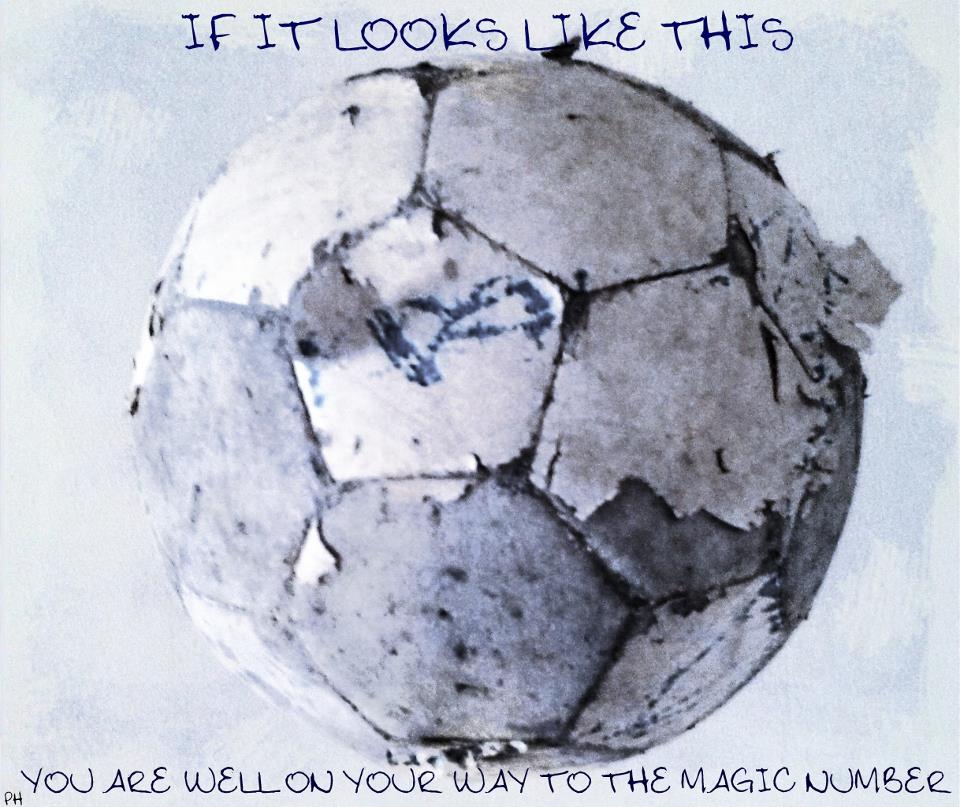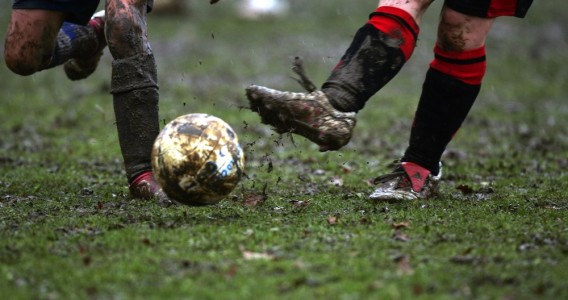SITTING at a wind-swept five-a-side complex in Edinburgh, John Collins’ passion for proper youth development is fiercer than any gale outside.
Scotland’s national team is slipping worryingly down the FIFA rankings and recruiting Collins indicates how the SFA aims to address declining standards. One of the country’s most gifted footballers will coach international youth squads from under-15 level upwards and is eager to make a difference.
Collins played in the Champions League semi-finals with Monaco, scored a World Cup goal for Scotland against Brazil and managed Hibs to their only recent trophy success in the 2007 League Cup final. Yet he becomes incandescent when discussing the kids whose footballing progress is stalling all across Scotland. He wants them coached properly on all aspects of the game, hence his appointment to assist the SFA’s new National Youth Teams coach, Scot Gemmill.
As Scotsmen, we already have a great fighting spirit. It’s in the blood, we always give everything,” he continued. “The Scottish player always has that never-say-die attitude, but that’s not enough
“It’s not a full-time role, I’ll be coming in and out,” said Collins, speaking exclusively to the Evening News. “I spoke to Mark Wotte (SFA performance director) a few weeks ago and he asked me if I’d be interested in getting involved and I said I would. Hopefully it will be good for the SFA and good for the kids.
“I’ll enjoy it because I enjoy coaching full-time professionals, whether it’s 30-year-olds, 20-year-olds or young kids. You can make more impact long-term with kids and, as a nation, we’ve got to get working harder with our kids morning, noon and night to develop technical football players.”
That much has been heard many times before. Collins offers something few others can – an insight into football at the very top level; the good habits picked up amongst the Monte Carlo millionaires and the technical ability that takes players to the Champions League’s latter stages. In Scotland, those issues and many others have been ignored for too long. It’s time to learn, and the younger the better.
“We’re not good enough at these things and that’s where we’ve fallen behind in the last 20 years. If we can combine the technical aspects with the natural Scottish spirit, hopefully we’ll get to where we should be – qualifying for tournaments and playing entertaining football”
“As Scotsmen, we already have a great fighting spirit. It’s in the blood, we always give everything,” he continued. “The Scottish player always has that never-say-die attitude, but that’s not enough. We need the technique and a philosophy that, when we go on the pitch, we want to control the opposition and the ball.
“The way to control the opposition is if you have skill, technique and coaching giving the right message that you’re going out to pass, to move and to entertain. Football is entertainment. The bottom line is, if we want to catch the top nations in the world, we’ve got to work on technical development. I don’t want to talk about other coaches the way it’s going. All I’ll say is we need to focus on skill, movement, passing, receiving.
“We’re not good enough at these things and that’s where we’ve fallen behind in the last 20 years. If we can combine the technical aspects with the natural Scottish spirit, hopefully we’ll get to where we should be – qualifying for tournaments and playing entertaining football.
“Young kids at development age are growing in every way. Their muscles are growing, their brains are growing, they’re absorbing information. If you get into good habits as a youngster, they stay with you for life. The younger you can get at them and work on the right aspects of football, the better they will develop.
“We all want to see our communities full of fit and active children. In recent years, that’s fallen. Technology is a big reason for it, as are processed foods. We need more healthy eating and healthy lifestyles. As adults, it’s our responsibility to make things better for younger generations. We all have a responsibility – everybody involved in sport and the government as well. It takes money and hard work and there are initiatives started to get more facilities. I would like kids to do more PE at school. I think that’s the starting block.”
 Since his late teens, Collins’ footballing philosophy has been shaped heavily by the globally respected Coerver coaching programme. It celebrates its 21st anniversary in Scotland this year, but is endorsed by worldwide luminaries like Spain’s World Cup-winning coach Vicente Del Bosque and the Argentinian legend Ossie Ardiles. Its focus on individual skills development played a crucial part in Collins’ own development as a player.
Since his late teens, Collins’ footballing philosophy has been shaped heavily by the globally respected Coerver coaching programme. It celebrates its 21st anniversary in Scotland this year, but is endorsed by worldwide luminaries like Spain’s World Cup-winning coach Vicente Del Bosque and the Argentinian legend Ossie Ardiles. Its focus on individual skills development played a crucial part in Collins’ own development as a player.
“I was 18 and playing at Hibs. Coerver came to Easter Road and did a demonstration on the pitch with their best Dutch kids. I was sponsored by Adidas at the time and they asked me to participate and I thought ‘wow, these kids have incredible balance and skill’. A few months later I went out to a Coerver camp in Lake Placid in America and joined in for a week. I got to know the people who own Coerver, Alfred Galustian and Charlie Cook. Basically, from the first time I saw their coaching, I saw their results with the kids, the balance, co-ordination and two-footed players. I thought, ‘that’s for me’. It’s everything I believe in, everything I believe a footballer should have.”
“Whenever I had a spare minute or got a ball before a warm-up, I was always doing my Coerver work – fast feet, quick touches, change direction, Cruyff turns, stepovers. There’s no doubt it helped me. Although I would have been an even better player if I’d discovered Coerver at seven or eight years of age’
Scotland
Scotland’s Under-15s, Under-16s and Under-17s can expect to be coached in the same manner now that Collins is involved. “I’ll use Coerver with the Scotland teams, 100 per cent. It’s all part of developing young players because you’ve got to have the tools. If you’re a tradesman, you can’t do your job unless you have a toolbox. Football is the same. You can’t be a football player unless you’ve got the tools. The tools of a football player are: being two-footed, good balance, co-ordination, tempo and a good first touch. That’s all Coerver works on, the important aspects of the game.
“Part of being able to enjoy football is mastering that little white thing. Until you can master it – right foot, left foot, turning, twisting, passing, receiving – you aren’t going to enjoy it. I’ve had my career, but whenever I’ve had an opportunity to promote Coerver, I’ve done it. To this day, I’m still as passionate about it. I love coaching it and I love seeing kids doing it. I can watch a game of football in Edinburgh and spot a kid who’s been doing Coerver sessions for years because he has the balance and co-ordination.
“It’s not the be-all-and-end-all because to be a top player you need other attributes as well. You need to be brave and have good endurance and fitness. But Coerver gives much more than just skill. You’re working your calves with sharp movement, and if the session is done intensively then you’re working your cardio as well. It’s something, as you can tell, that I really love.”
The wind begins to pick up outside, yet it is no distraction when Collins is in full flow. He gives the impression he would happily sit all day and chat about improving Scottish kids and how best to coach them. For him, a key word is “ambition”. Players should never settle for the ability they have and should always strive to improve as individuals. Collins explains how Coerver’s philosophy helped him become a better footballer.
“Too often, at 18 or 19, we already think we’re the finished article,” he lamented. “Players say, ‘I’m a professional now, I’m full-time, I’ve got my contract, that’s it. I just need to train every day like everybody else is and I’ll be okay. I’ve always been of the mindset that you can always get better, right up until the day you retire. If you’re on that training pitch doing the right things, then technically you should be improving every single month. Age doesn’t affect skill, it affects physical strength and speed.
“Whenever I had a spare minute or got a ball before a warm-up, I was always doing my Coerver work – fast feet, quick touches, change direction, Cruyff turns, stepovers. There’s no doubt it helped me. Although I would have been an even better player if I’d discovered Coerver at seven or eight years of age.
“The country which has taken on Coerver the most in the last 20 years is Japan. Coerver is all over Japan. Alfred Galustian (Coerver co-founder) works in Japan for four months every year coaching their coaches. The secret to covering lots of kids is concentrate on their coaches. I think their professional leagues have something like 300 kids who have been through the Coerver system since they were tots.
“Anybody who doesn’t know Coerver properly will say it’s all about tricks, it’s a circus. People who mention the word ‘tricks’ doesn’t know what they’re talking about. Coerver isn’t about tricks. It’s about moves, knocking the opponent off balance. Stepover one way, change balance and bang, you’re away the other way. It is moves to create space on the pitch to let you deliver a pass, a cross or go through one on one to score a goal. Thirty yards from goal you need to be able to create space to cut open a packed defence. Most goals are created by a bit of magic and I think Coerver teaches kids the magic.”
The youngsters currently in the Scotland youth squads will now be introduced to that magic as John Collins seeks to do his bit to arrest the country’s footballing decay.
Focus on skill
COERVER coaching is a global football coaching programme inspired by the late Dutch manager Wiel Coerver.
It teaches football skills for all ages, but specifically for young players aged between five and 16 years old.
The programme focuses on individual skills development and small group play and ultimately aims to improve the technique of its participants.
Coerver is designed to develop skilled, confident and creative players; make the game fun to practice and play; teach good sportsmanship and respect for all; value winning but not more than character and performance as well as provide a safe and educational experience that meets top practice criteria.
The Coerver company was established in the late 1970s and is owned by Alfred Galustian and the former Chelsea player Charlie Cooke.
It is endorsed by football clubs and international federations across the world and celebrates its 21st anniversary in Scotland in late August this year. The French Football Federation, Football Federation of Australia, the Chinese Football Association, the Japanese Football Association, Bayern Munich, Newcastle United and Arsenal all back the programme.The first kid to come through the Coerver coaching programme and reach the World Cup finals was the Dutch international winger Bolo Zenden in 1998.
By BARRY ANDERSON
Published on 24/04/2013 12:00
Edinburgh Evening News
Dublin Workshop
Coerver are running a workshop in Dublin on 18 and 19th May you can find out more here Coerver Workshop Dublin














